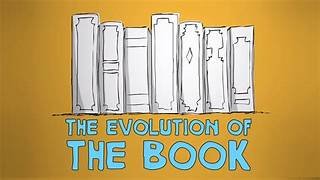Question books have been a fundamental resource in India’s educational landscape for decades. From their humble beginnings to their current sophisticated forms, these books have significantly influenced how students prepare for exams and understand their subjects. This blog delves into the evolution and impact of question books in India, highlighting their role in shaping the educational journey of countless students.
The Beginnings: Traditional Question Books
In the early stages of Indian education, question books were relatively simple. Initially, these books primarily consisted of a collection of past examination papers and sample questions. The aim was to provide students with practice material that mirrored the format and difficulty of actual exams. These early question books were largely based on the syllabus and focused on rote learning.
Transitioning from this traditional approach, question books began incorporating model questions and solutions. This shift aimed to offer more comprehensive preparation, enabling students to not only practice but also understand the methodology behind solving problems. As a result, students began to see improvements in their exam performance and overall understanding of the subject matter.
The Rise of Competitive Exams: A New Era
With the advent of competitive exams in India, the demand for specialized question books surged. Consequently, publishers started producing question books tailored for various competitive exams such as IIT-JEE, NEET, and UPSC. In addition, these books included advanced questions, detailed solutions, and explanatory notes designed to cater to the specific needs of students preparing for these rigorous tests.
Moreover, the focus of question books began to shift from just providing practice material to offering strategic insights. For instance, books began including tips on time management, question-solving techniques, and mock tests. As a result, students were better equipped to handle the pressures and complexities of competitive exams.
The Digital Revolution: Question Books Go Online
The early 2000s marked a significant turning point with the advent of digital technology. As the internet became more accessible, the format of question books evolved dramatically. Digital question books, online portals, and mobile apps started to gain popularity. This transition allowed students to access a vast repository of question banks and practice papers from anywhere and at any time.
Furthermore, digital question books offered interactive features such as instant feedback, progress tracking, and personalized recommendations. In addition, the integration of multimedia elements, such as videos and interactive quizzes, enhanced the learning experience. This shift to digital resources made it easier for students to stay updated with the latest exam patterns and practice more effectively.
The Impact on Students’ Learning Experience
The evolution of question books has had a profound impact on students’ learning experiences. Primarily, these books have transformed how students approach exam preparation. For instance, with the availability of diverse question banks and model papers, students can now practice a wide range of questions and scenarios, which helps in building confidence and improving problem-solving skills.
Moreover, the comprehensive solutions and explanations provided in modern question books aid in deeper understanding. Instead of merely memorizing answers, students can now grasp concepts and apply them effectively. This change in approach has led to better academic performance and a more thorough understanding of subjects.
In addition, the accessibility of digital question books has democratized education. Students from remote areas and those with limited resources can now access high-quality preparation material online. Consequently, this has helped bridge the educational divide and provided more equitable opportunities for students across the country.
Challenges and Criticisms
Despite their numerous benefits, question books are not without their challenges and criticisms. One major concern is the potential for over-reliance on these resources. Students might focus excessively on practicing from question books rather than engaging in comprehensive learning and critical thinking. Furthermore, the commercialization of question books has led to a proliferation of low-quality material that may not provide accurate or effective preparation.
Additionally, the rapid advancement of digital technology has also raised concerns about screen time and the need for a balanced approach to studying. Thus, while digital question books offer convenience, it is important for students to use them judiciously and not at the expense of traditional study methods and overall well-being.
Future Trends and Innovations
Looking ahead, the evolution of question books is likely to continue with further advancements in technology. For instance, the integration of artificial intelligence and machine learning could lead to even more personalized and adaptive learning experiences. Moreover, the use of virtual and augmented reality might offer immersive ways to practice and understand complex concepts.
Additionally, there is a growing emphasis on developing question books that focus on holistic learning. Instead of merely preparing for exams, these books aim to cultivate critical thinking, creativity, and problem-solving skills. As a result, students will be better prepared for the challenges of the modern world.
Conclusion
In conclusion, the evolution of question books in India reflects broader changes in education and technology. From traditional paper-based resources to advanced digital platforms, question books have played a crucial role in shaping students’ exam preparation and learning experiences. Moreover, while challenges exist, the continuous innovation in this field promises to enhance educational outcomes further. Therefore, understanding the impact and future trends of question books can help students make informed choices and maximize their preparation strategies.
Embrace the journey of learning with the right resources and stay ahead in your academic pursuits.



